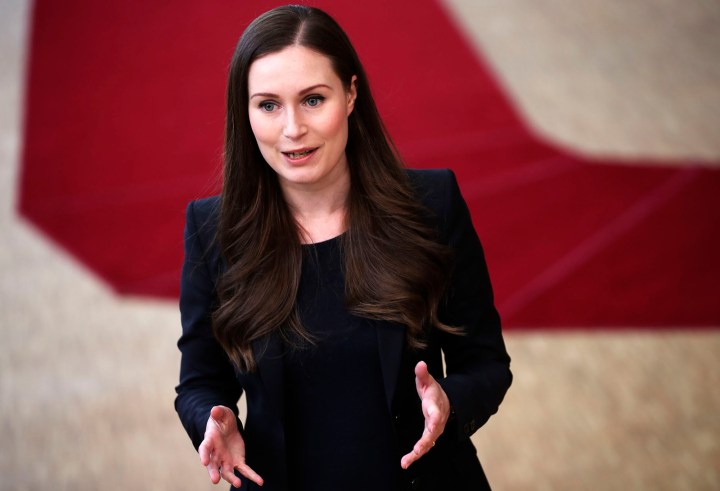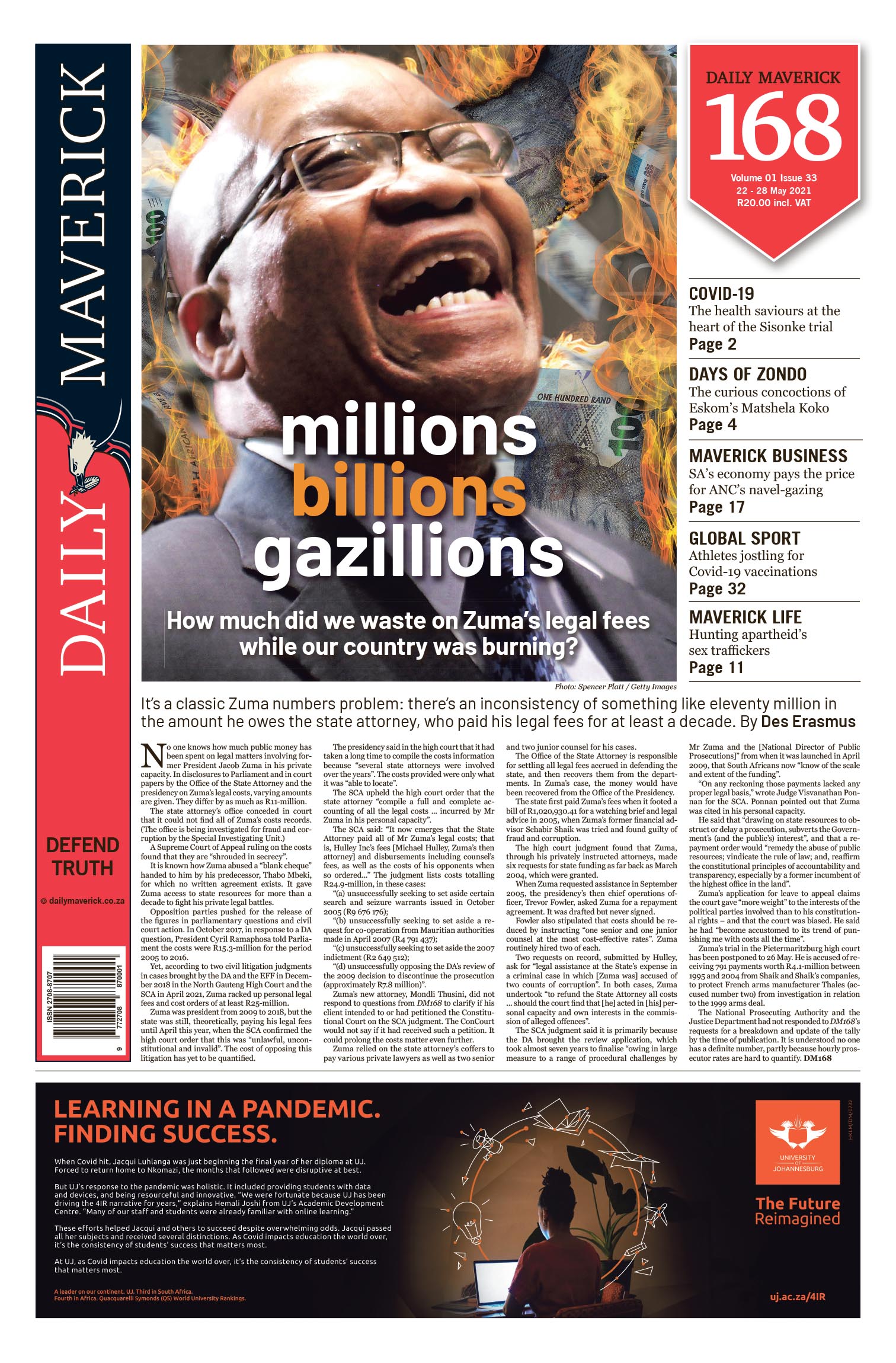DAILY MAVERICK 168
Finland deserves a seat on the UN Human Rights Council as it advances equality

Finland’s ambassador to South Africa, Raija Anne Lammila, is fairly confident her country will get one of the other two seats. But she’s by no means complacent. And nor is her government.
First published in the Daily Maverick 168 weekly newspaper.
When you look at some of the countries that get onto the United Nations Human Rights Council, Finland should be a shoo-in. Some others have appalling human rights records. By contrast, Finland is among the most democratic and egalitarian, human rights-respecting countries on the planet. Yet, because of the peculiarities of the regional representation system, Finland is fighting hard to win a seat on the council, for the period 2022 to 2024, in elections to be held by the UN General Assembly in October this year.
The 47-nation council has 13 seats for African states, 13 for Asian-Pacific states and eight seats for Latin American and Caribbean states, but only seven for the “Western European and other group” (WEOG) of states (that is, the Western democracies) and just six seats for Eastern European states.
Voting is staggered, so this year there will be voting to fill three WEOG seats. But there are four candidates: Finland, Italy, Luxembourg and the US. The US is almost certain to win one, to welcome it back to the council the Trump administration quit in June 2018, saying the council was a “protector of human rights abusers”.
Finland’s ambassador to South Africa, Raija Anne Lammila, is fairly confident her country will get one of the other two seats. But she’s by no means complacent. And nor is her government.
Finnish Prime Minister Sanna Marin pitched to the UN Human Rights Council earlier this year on why Finland should have a seat on the council.
Over the last century, she said, Finland had developed from a poor agrarian country into a stable, equal and prosperous nation “by including everyone and by placing human rights, fundamental freedoms and equality at the very centre”.
Gender equality and free, high-quality education had been fundamental to Finland’s success. “Through our human rights-based foreign and development policies, Finland is committed to promoting human rights and equality and to fighting extreme poverty globally.”
If elected to the council, Marin said, Finland would focus on the rights of women and girls, climate change, digital space and human rights. She said there had been a pushback on women’s and girls’ rights in many countries: discrimination, violence and trafficking of women and girls had increased, partly because of the Covid-19 pandemic.
“Sexual and gender-based violence is still used as a weapon in conflict, repression and ethnic cleansing. We are deeply concerned about what we are hearing from the Uighurs, the Rohingyas and Tigray.”
Marin also said that “digitalisation must become a force for the promotion and protection of human rights and fundamental freedoms, as it is changing the way the world works… It is essential that we bridge the digital divide.
“Finland wants to promote a safe digital space for all and to enable everyone to use their voices without the threat of violence, harassment or hate speech. We cannot allow authoritarian governments to use internet and media shutdowns as a political tool,” Marin said.
Last month the Finnish embassy held a briefing at the Forge Academy in Fourways to showcase its efforts to bridge the digital divide in SA – and how that could advance human rights. This was part of its campaign for election to the UN council.
Ambassador Lammila said it was important to protect human rights online as well as in person. The benefits of digitalisation were unevenly distributed and this had become more apparent during the Covid-19 pandemic, when so many worked from home.
It was essential that no one was left behind. Marginalised people must have access to the internet and to the necessary equipment and skills.
Lammila said Finland was consistently near the top of world rankings on digitalisation and was leading the world in ensuring digital access.
In South Africa, Finland is doing that by supporting several initiatives, including the Southern Africa Innovation Support Programme (SAIS), a regional enterprise that supports the growth of start-up businesses by strengthening innovation. SAIS also breaks barriers preventing women becoming digital tech entrepreneurs.
Finland also supports the Forge Academy, where last month’s event was held. It was launched in November last year as an incubator to teach students how to get jobs or start businesses in the artificial intelligence, augmented reality, virtual reality and digital media fields of the new Fourth Industrial Revolution (4IR) economy, its website says.
Forge Academy CEO Arthur Wade Anderson said the institution was a digital laboratory where students could experiment with 4IR technologies and also a virtual classroom that students could access from their homes.
Pat Wiehahn, head of strategic relations and transformation at Nokia South Africa, said at its launch that Nokia was supporting Forge with industry-standard training in technology, “to become the blue ribbon 4IR Academy in South Africa and Africa”.
“The existing mismatch between youth skills and employer needs threatens to become even wider as Industry 4.0 transforms business and jobs faster than workers can adapt,” she added.
Finland is also supporting the South African enterprise Contextualize, which is working with the Finnish company Code School Finland to teach computer programming to South African teachers.
Contextualize technical director Marcus Duveskog said Code School Finland was the world leader in its field, using Finland’s renowned teaching expertise (which stresses creativity and play rather than discipline or learning by rote).
This teaching method was so effective that it enabled even teachers without programming experience to learn to teach it to school students in a short time, Duveskog said. That makes it sound like a magic bullet for SA’s large deficit in teachers’ skills.
And indeed Contextualize and Code School Finland are currently running pilot programmes, teaching 11 teachers at four government schools, two in the Western Cape and two in the Eastern Cape. These schools wanted to introduce coding but had not known how. “In the next phase, probably later this year, we want to bring it into 100 schools, targeting low-resource schools where presently they have not had this sort of opportunity.”
And they planned to go beyond SA into the region. Duveskog said that, to expand, the company would also have to train teachers to teach other teachers to teach coding.
The next step being to scale up operations, Duveskog said he would have liked to meet the senior official from the Department of Basic Education who was invited to last month’s briefing but did not arrive. Though he was already working with the provincial departments of education of the Western and Eastern Cape, “we would have loved to align with the Department of Basic Education programme”.
Nokia’s Wiehahn suggested that if one wanted to work with the government one should go to them with “end-to-end solutions. If you take half a solution and a lot of questions, you won’t succeed. If you take a complete solution, you’ll succeed,” she advised, adding that one should not expect the government to do too much because it just didn’t have the money.
The Finnish company Funzi is also participating in Finland’s efforts to bridge the digital divide in South Africa. Funzi’s mission is “to bring learning to 90% of the global population by using the power of mobile”.
Its founder and president, Aape Pohjavirta, speaking remotely from Finland, said Funzi, established only in 2014, already had 8.5 million users worldwide. “We regard learning as a human right and South Africa is close to our hearts.”
Funzi in turn supports the South African not-for-profit enterprise Harambee Youth Employment Accelerator, which helps young Africans overcome barriers to employment. It’s working with about one million youths, addressing not only skills shortages but other obstacles to employment such as lack of professional networks.
Harambee senior learning specialist Brent Davidoff told the gathering how 2020 had been a turning point for the organisation, as it stepped into the breach to staff call centres handling the huge surge of applications for benefits from the Unemployment Insurance Fund and the Covid-19 Temporary Employee/Employer Relief Scheme (TERS). “We helped close to one million people get paid,” he said. That had helped build trust with a grateful government – and so Harambee had gone on to help 50,000 young people navigate many obstacles to get places as teachers. Many of them now had permanent teaching jobs.
So that’s Finnish human rights in action. DM168
This story first appeared in our weekly Daily Maverick 168 newspaper which is available for free to Pick n Pay Smart Shoppers at these Pick n Pay stores.





















 Become an Insider
Become an Insider
Comments - Please login in order to comment.